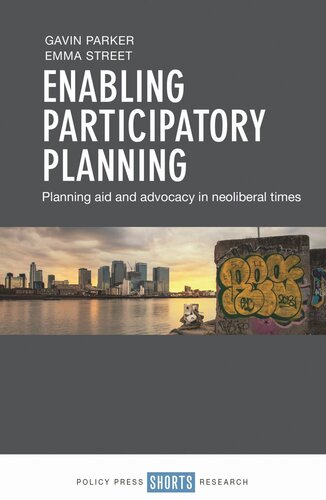

Most ebook files are in PDF format, so you can easily read them using various software such as Foxit Reader or directly on the Google Chrome browser.
Some ebook files are released by publishers in other formats such as .awz, .mobi, .epub, .fb2, etc. You may need to install specific software to read these formats on mobile/PC, such as Calibre.
Please read the tutorial at this link: https://ebookbell.com/faq
We offer FREE conversion to the popular formats you request; however, this may take some time. Therefore, right after payment, please email us, and we will try to provide the service as quickly as possible.
For some exceptional file formats or broken links (if any), please refrain from opening any disputes. Instead, email us first, and we will try to assist within a maximum of 6 hours.
EbookBell Team

4.3
58 reviewsThis book examines the challenges in delivering a participatory planning agenda in the face of an increasingly neoliberalised planning system and charts the experience of Planning Aid England. In an age of austerity, government spending cuts, privatisation and rising inequalities, the need to support and include the most vulnerable in society is more acute than ever. However, forms of Advocacy Planning, the progressive concept championed for this purpose since the 1960s, is under threat from neoliberalisation. Rather than abandoning advocacy, the book asserts that only through sustained critical engagement will issues of exclusion be positively tackled and addressed. The authors propose neo-advocacy planning as the critical lens through which to effect positive change. This, they argue, will need to draw on a co-production model maintained through a well-resourced special purpose organisation set up to mobilise and resource planning intermediaries whose role it is to activate, support and educate those without the resources to secure such advocacy themselves.